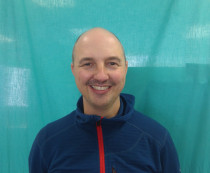Summary
This is the second of 2 blog posts about what we shared and learnt when Pia Andrews, Abbe Marks and I visited Innovation Labs in Auckland and visited Tauranga City Council to work with them on the development of the Rates Rebate Alpha. We aimed to build connections with people and Labs in Auckland and Tauranga for collaboration on Service Innovation Lab work programme initiatives.
My first post talked about our 2-day race around Auckland innovation labs.
In this post I report on our visit to Tauranga City Council, our discussion with people from the Tauranga Venture Centre about legislation-as-code, and my reflection on the whole trip.
Tauranga City Council
We currently work with the Tauranga City Council and their co-design lab led by Pip Loader. Pip and her team have over the last few years worked with a variety of Council teams and led them through 12 week co-design challenges that work with people in the community to improve the wellbeing of their city and people’s interactions with the Council. Like the Auckland Co-Design Lab, there's a lot we can learn from the way this team works.
We are working with the Council’s Lab on the Rates Rebate Alpha and being in Tauranga gave us a chance to:
- work with the team and iterate the service design of the Alpha,
- meet the service centre team who will be helping ratepayers apply for a Rates Rebate through the prototype digital service
- plan out the tasks required for readiness of the entire user experience.
I experienced how difficult the current Rates Rebate process is through role-playing. I went into the service centre, asked about the rebate and began to fill in the form, which was complicated even for someone like me who has experience filling in forms. Having someone to guide me through the process made a big difference and reconfirmed that it should not be this difficult. This Alpha service is the first step of making this process easier for ratepayers, the Council and the Department of Internal Affairs.
This experience made me think about how many other services and processes are struggling to deliver to their original intent because they are determined under legislation that no longer reflects the world we live in.
Tauranga Venture Centre and Legal Hackers NZ
We didn’t get to visit Venture Centre and the amazing network of innovators in Tauranga this trip, but we did get to spend some time with Jo Allum (Co-Founder and Director, Venture Centre) and Rob O’Brien (Founder, Legal Hackers NZ) talking about legislation-as-code, innovation, how to collaborate and engage with startups, and the need to forge new ways to work together on broader societal challenges. We discussed the possibility of working together on a hackathon to test the idea of legislation-as-code for the benefit of community and industry.
My reflections on the trip
It was a fantastic trip and a real privilege to meet people doing great work in our communities. The trip enabled our team to connect with others doing similar work and through our shared values we’ll be able to work with each other in the future.
It showed how everything is connected, for example our work looking at an improved “Notice of Sale” should have benefits to water utilities and councils interacting with ratepayers.
The trip has also raised some questions for me:
- Have people in organisations lost the ability to collaborate? If so this is possibly the reason for the rise in use of design thinking, co-design and other innovation methods? To support this we need methodologies to help us collaborate and re-engage with empathy in a professional setting. We also need Labs as they provide safe environments for talking, exploring, co-creating and delivering.
- How can we do great co-design within short timeframes? Much of the co-design work we saw in Auckland and Tauranga ranged from 1-5 years. Due to pressures of agency operational delivery time constraints the cross agency discoveries we run in the Service Innovation Lab range from 3-6 weeks, with teams who are often very new to working in this way. Our approach takes the principles of co-design to explore a problem space and provide an evidence backed, indicative guide on next steps. Under our constraints that might be enough, but we need to be careful how we manage the expectations of working this way and the outcomes that can be realistically delivered in short periods.
- How can we work across Labs and design initiatives to genuinely share insights, research, methods and more so we are all building on each other’s effort?
In this brief trip to Auckland and Tauranga we met lots of people doing incredible work, and shared our insights. We want to extend a huge thank you to everyone we met, it was fantastic to learn and share with you, for the benefit of the people and communities we all serve.
If you'd like to stay across our work, please join our mailing list.


